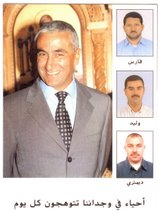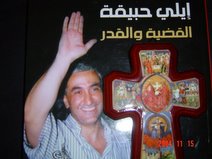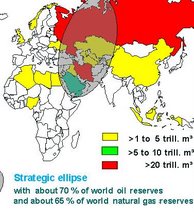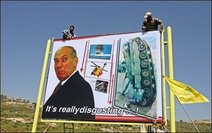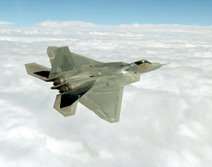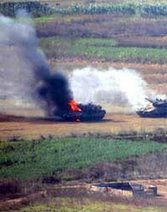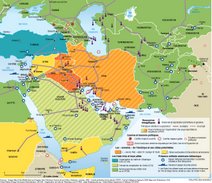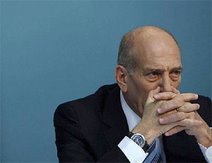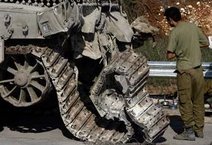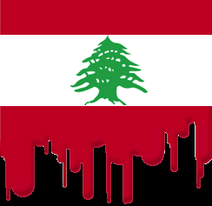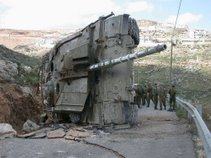
With tears in their eyes and flowers in their hands people paid tribute to their national hero, Mr. Elie HOBEIKA, 1956-2002. Sad at the loss, which can never be compensated, yet pride was all over their faces, sacrificed their son of the soil. His was a death for a noble cause of dying for one's own country. Such men are not born everyday, they belong to the rare class of humanity, who are an example in themselves, and they are the ones who set precedents. And they themselves are unprecedented.

---------------------------------------------------------------------------------
This is Elie HOBEIKA's life, a daily struggle for better Government.
----------------------------------------------------------------------------------

Conflict resolution is the process of commissioning arguments and then finding a resolution. Although, the desired end may not be reached. If conflicts are left unresolved they leave potential for the situation to escalate. Resolution is dependent on governmental as well as nongovernmental groups. Domestic conflicts can occur between governmental parties. Alternative measures include protests, civil disobedience, strikes, civil war, coup d'état, revolution, and Resistance. HK
I -- Government, Politics, PNAC and Global Inequalities...

"Many forms of government have been tried, and will be tried in this world of sin and woe, Shock and Awe.... No one pretends that democracy is perfect or all wise. Indeed, it has been said that "managed democracy" is the worst form of government except all those other forms that have been tried from time to time...." HK

1. Types of Government :
We all grow up knowing that government plays an important part of our lives at all levels. So what exactly is government? Government is the mechanism that people employ to protect themselves. A country’s government depends on many social, political, and economic factors. Thus, there is a sort of circular connection due to the fact that a country’s social, political, and economic factors depend on that country’s government. As Americans we know that we live under a democratic government. But there are many forms of governments that people live under that are foreign to us.
A government can either be deemed a monarchy or a republic, depending on the presence or absence of a monarch. A monarchy is ruled by a royal family, which consists of a titled king or queen. The title of monarch is often determined by birth, meaning the people who live in a monarchy usually have no say in who their monarch is. A king and or queen receives their title simply by inheritance from a parent. There are also three different types of governments that fall under the system of monarchy.
The first type of monarchy is the limited monarchy. This form of monarchy has another form of government on top of the king or queen. The king and queen are mostly a public showcase. The powers of a limited monarch are exactly that, limited. The powers of limited monarchs consist of simple ceremonial functions. An example of a limited monarch is the United Kingdom, which is led by Queen Elizabeth. The latter’s son, Charles is the heir apparent for the monarchial position. The United Kingdom has had this system of limited monarchy for years. The actual laws of the United Kingdom are made up by the Parliament. Elizabeth is the Queen by title. She is a limited monarch.
The next type of monarchy is the constitutional monarchy. A constitutional monarch has actual powers, but these powers are defined in a written constitution. Thus the king or queen in a constitutional monarchy has powers that control the people in the nation in which they rule. But the powers of a constitutional monarch are limited and inscribed so that the fate of one nation is not simply in the sole hands of one very powerful monarch. The monarchs in a constitutional monarchy will face consequences and repercussions for not abiding with the law (i.e., the constitution). Two examples of constitutional monarchs are Thailand and Sweden.
The third and final type of monarchy is the absolute monarchy. In an absolute monarchy the king or queen has absolute power over the country that he/she rules. The absolute monarch has powers that are not limited by any association of people. Therefore the fate of the nation ruled by an absolute monarch is in the hands of one man, the king. This idea of absolute monarchy is comparable to a dictator, which will be discussed later.
Although all of the different forms of monarchies are very different, they have something that makes them similar. They all have a titled monarch. The next form of government to be discussed does not have a monarch. This form of government is called a republic.
A dictatorship is a form of government where all powers lie in the hands of one man, not very different from the absolute monarch. The ruler of a dictatorship is the dictator. There are many ways that a dictator gets control of the government. The idea of a dictator having control by force is the most common in the media today. As known, a government is a very powerful thing; thus a dictator who has control over the government becomes a very powerful force. Our government controls many aspects of our life from jobs, to schools, to our rights as citizens of the country in which we inhabit. When one man has control over all these things he becomes an important man. And when this dictator does not have the best intentions for his country in mind, more problems can arise. For example, two very famous dictators are Adolph Hitler and Saddam Hussein. Both men caused wars because of their hunger for power.
Another type of republic is the oligarchy. An oligarchy is rule by the few. In an oligarchy a small group of people has control over a whole nation. The fairness of an oligarchy depends on whether or not its rulers pay attention to the groups or the people’s best interests. With historic monarchs it seems that the group that has power is not representative of the nation that it rules. For an example of oligarchy, we look to the government years ago in South Africa where there was a strong system of apartheid in which whites had all powers, rights, and privileges, and the rulers were all white. The majority of the population in South Africa is over 90% black. Another showcase of oligarchy was in the systems of feudalism in which the division of power was based on class, which was totally opposite to the actual numbers of people in each group.
The last form of government we will discuss is the democracy. Democracy is based on the idea of rule by the people. Democracy is rule by the majority. People get to have a say in government. In a democracy elections take place and people get to vote on the rules and rulers who make them. In a democracy the people get to take an active role in their government. Democracies seem to be a strong and stable form of government because of the idea that people do not just sit back while their lives are controlled by people that they do not even choose. The positive effects of democracy are ideal to most countries; therefore, the idea of the democracy is spreading fast through developing countries.
Our government controls many aspects of our life. Therefore it is important to take an active part in the government that controls you. Around the world, governments and societies are evolving to a more democratic and fair ideal. The old forms of government in which one or few people are in control of an entire country are causing riot and revolution in many parts of the world.
2. Nations and States .
Chapter one begins by explaining that people have a limited knowledge of the world as a whole. The United States, while a major superpower, only accounts for less than five percent of the world’s population. One-fifth, or one out of five people on earth, is Chinese. More than two-thirds of the world’s population belongs to Third World or underdeveloped countries. These countries are underdeveloped economically, as well as technologically.
Dianne Lang shows how almost all of the Southern Hemisphere is “underdeveloped.” These areas would include most or all of the countries in Africa, Asia and Latin America. Between these three areas reside three-quarters of the world’s population.
Lang explains that the term Third World, “has historically been used in reference to those states that are characterized by limited development of industry, economic structure, and international trade, and have had persistent, sometimes overwhelming, socioeconomic problems.” Typically they “lack stable political structures.”
Lang also defines the terms democratic and capitalism. “Democratic assumptions include a belief in the equality of political and economic rights possessed by all people in the society. Capitalism assumes private ownership of production and trade combined with a largely unrestricted marketplace based on the belief that the market is self-regulating and should be free of government intervention unless it fails.”
When markets fail, governmental intervention is needed. When parts of the marketplace are controlled and regulated by government, that system is now under socialist control. Some examples of structures that can be controlled by a socialist system include: the mail system, transportation systems, health care, and education.
Marxism comes from the writings of Karl Marx. “In Marxist states, the government plays a dominant role in controlling economic affairs, which produces the political system called Communism.” There are only a few countries today that follow the Marxist beliefs or possess Communist systems.
It must be understood that no system is purely capitalist or socialist. All countries follow a mixed system in some form. “In such economies, there are places where government intervention is deemed appropriate.” There are many ideas that people need to understand in order to fully understand the world’s people. Such things include: economics, technology, political systems, and geography of the different states.
In 1945, the United Nations (UN) was founded. Thirty-one of the fifty-one countries that first belonged to the United Nations were considered “developing” states.
Third World countries share some common features between them:
1. Dependence on Western powers
2. Delayed modernization
3. Population explosion
4. Unequal distribution of wealth
“Most Other World (Third World) countries have historically been colonies of major Western powers. Their economic, educational, religious, and political systems are now heavily influenced or dominated by their histories and resulting patterns of neocolonialism.”
Only one-third of the world’s population has access to proper sanitation. “Sanitation of food, water, and environment is a crucial factor in human health.” “Poor sanitation in urban areas is a serious threat to public health as bacteria, viruses, and parasites in human waste contaminate public drinking water.”
Communication is also a problem. People in Third World countries have little to no access to telephones, television, or the Internet. “In China, for example, only 4.5 telephone lines exist for every 100 people.”
“It took two million years for the world’s population to reach one billion, but it took only 100 years to reach the second billion. Today, the world’s population is approaching 6 billion and is growing still. Each year, 90 to 100 million people are added.”
It is interesting to see that “over half of the world’s population survives on an annual per capita income of $800 or less.”
We have looked at the differences between the developed countries and the undeveloped countries. It is easy to see how hard it is in these undeveloped lands. It is hard to imagine living on $800 or less, little or no communication, poor sanitation, poor economy, and large family structures where you would have many mouths to feed. People in the United States know that they have it good, but considering that the U.S. only accounts for a fraction of the world’s population, people had better wake up and realize what the rest of the world is going through.
3. Nationalism :
Nationalism can be described as a feeling or an emotion. It is internal in people's minds, but it is also a driving force for entire countries. Nationalism is a feeling of pride and a feeling of belonging in one's nation. This process of thought mostly originated in Western Civilization. During the rise of the nation state in Western Europe, countries began to do things their own way. They stopped practicing old traditions that used to be the standard and started to be more individualistic. This caused the citizens of these nations to feel more like a part of their own nation and less like others because they considered themselves as distinct from other nations.
One of the aspects that nationalism was based on was common culture. People believed that sharing common culture made them more unified and stronger as a nation. The different entities of culture that were looked for included everything from religious beliefs and practices, to race, to what language they spoke. When a nation began to share these characteristics and started feeling more and more like a unified group, the feeling of nationalism came into play. Members of the nation would become very proud that they were a part of it and look for outward signs to express loyalty to their nation. They also wanted to express what nation they were a part of.
Different signs are used to express nationalism and enthusiasm in one's county. Over the years, many signs have been developed and are still used in modern society. One of these signs is the flag. Every nation has a flag that is a visual symbol of that nation. Nations usually always use their flags for patriotic ceremonies and political traditions. For example, every time the president of the United States gives a speech, it is usually from a podium set up with the American flag on a stand behind him and to his right. This is also true of military ceremonies. When new soldiers are being sworn in, or when officers are being commissioned, the flag always appears somewhere in those ceremonies.
The United States is not at all an exception to the usual practice. All countries place a very high level of respect and value in their flag. In fact, sometimes individuals become emotional and even violent over flags. I will discuss this later. Flags are a very simple, yet very meaningful way for one to identify with a country. A simple piece of cloth put together with certain colors identifies a particular country. If a flag is worn by a person, hung from a pole outside a building, or flying high at a sporting event, everybody can clearly understand what country is being represented. That flag also serves as a visual object that people can look at and think of their country as a whole. This might be a difficult concept to visually encompass otherwise.
Another sign that is used to express or encourage nationalism is the national anthem. This is a song that people use to symbolize what they believe their nation stands for. Generally, important values, beliefs, and practices are covered in the lyrics of an anthem. Often times the national anthem also incorporates some type of national history. The national anthem may be used to build enthusiasm and make people think about their country as a whole and to show pride in their country. When a national anthem is played or performed and people begin to sing along, not only are they displaying enthusiasm for their nation, but at the same time, they are feeling stronger as a group because everybody is singing together about how wonderful their nation is. This goes back to the original idea of the feeling of belonging that individuals find in nationalism. They are among other people who are like them in many ways, and participating in traditions like singing the national anthem helps to fuel their strong feeling of companionship among their fellows.
Historical sights also serve as a symbol of nationalism. When people are proud of their country and have a great deal of respect for it, they begin to also respect and preserve sights that are relevant to how their country came to be. For example, tours are still given of Abraham Lincoln's home in Springfield, IL. From a perspective of nationalism this makes sense because this man played a major role in changing how our country worked. However, from a more objective perspective, one may wonder what the big deal is. Tours are being given of a simple, average sized, old home that nobody lives in anymore. There is really nothing special about the house itself, and the area that the house is in really has no particular relevance either if history is not taken into account. Therefore, the area has been given significance solely because a man used to live there who became a national hero and is well remembered. This practice occurs in countries because people who hold a great deal of pride in their country want to learn about the history of their country and do what they can to preserve that history.
These symbols of nationalism help countries to build people's motivation and enthusiasm toward the nation. They also help citizens to display their positive feelings about their country. However, songs, flags, and historical sights are not enough to hold masses of people together as a nation. That is why there are common bonds of nationalism that tend to hold people together and make them feel like they belong. One of these bonds is sharing a common territory. When people live together, work together, and govern themselves in a given area, they begin to feel like a close group. When people know what it is like to live in a certain territory and are familiar with the hardships and benefits of living in that area, they have common knowledge and experiences to share. Again, having this in common makes them feel strongly tied to their fellow citizens.
Common language is also a major bond of nationalism. When there is a language barrier between two individuals, it is hard for them to feel like they are a part of the same community or nation. Even though two people may hold the same values and beliefs and be very much like each other, they most likely would not be able to discover this if they could not communicate effectively. Additionally, if people are in a region where many different languages are spoken, they will obviously be drawn to people who speak the same language as they do so they can communicate with each other and not become frustrated.
Another bond of nationalism is common culture. Culture encompasses many different aspects of how people live. It includes traditions and common manners and practices. It also includes religion, values, and beliefs. The reason culture is an important link in the practice of nationalism is that people have a natural tendency to associate themselves with others who live in a similar way as they do. For example, if one person does not believe that it is right to eat meat because of his/her religion, and he/she is invited to some home for dinner where meat is served, there is a cultural clash, and the result will be awkwardness. In more drastic situations, people who do not share the same religious beliefs can end up offending each other unintentionally because of lack of knowledge or awareness. This is why people naturally feel more comfortable around others of the same lifestyle.
Although nationalism can bring countries together and make them strong in times of hardship, it can also be dangerous. When citizens hold a great deal of pride and love in their country, they develop the thought that their country is superior. People begin to believe that if other countries were more like them they would be better off. This can have devastating effects on international relations. When a nation thinks it is the strongest and best nation, it can colonize other "weaker" nations. In doing this, the aggressor nation may not even realize that it is harming the nation being colonized.
Colonization is not the only possible negative outcome of nationalism. If people in a nation begin to be too much alike and too proud of how similar they are, they can begin to pick on people who are not in the majority. In other words, if a country is comprised mostly of white people with European backgrounds, they may begin to think that they are better then those with Asian or African backgrounds even though they were all born in the same country. This process of discrimination does not only occur with race, but also with religion. Many countries have singled out a certain religion and deemed it as being wrong or a threat to security and tried to tell people that they cannot worship that religion. Beliefs such as these have cost us such terrible tragedies as the Holocaust where millions of innocent people were killed simply because they were Jewish. When things like this happen, it is obvious that nationalism has gone too far.
Nationalism can serve as a very valuable asset to countries and their operation, but also can be a very dangerous train of thought leading to violence, prejudice and genocide. We must be careful as citizens and be able to identify what is a healthy enthusiasm in one's country and what is a dangerous level of arrogance that could result in the harming of other people. Nationalism is something that will always have to be monitored and treated carefully, and will always be present. Let us be wise in our own judgment and how we go about judging others.
4. Poverty, Hunger, Malnutrition, and Possible Solutions
Many years ago the problems concerning poverty, hunger, and malnutrition stretched across the entire world. In our society conditions have greatly improved, but most areas of the world are currently coping with these problems. In fact, before the Industrial Revolution most of the people on the Earth were poor. Everyone dealt with hardships and was concerned with things that we take for granted today, like how to feed a family. Since then, things have changed for our people and many countries. But in areas of Africa, Asia, Latin America and other countries of the world, these problems are very much a major concern.
As stated before, long ago there were very few well-off people. Everyone, from all nations was looking for a better life and opportunity. Many people relied on primitive methods of getting their food like hunting and gathering. While some found prosperity, others were stuck in poverty. The gap between poor and rich people has drastically risen. For example, in 1850 there were two poor people for every one rich individual. During the 1950's, which is known as a decade when the economy did very well, the gap rose to fifteen to one. It has been estimated that in the year 2000, the comparison will leap to about thirty poor people for every rich individual.
While our country does have its problems, we are fortunate to have the opportunities and freedoms we are offered. In class, it was mentioned that North Americans' worries about things like dieting and exercise pales in comparison to others' worry about acquiring enough food to eat one meal a day. Also life expectancy, which is about seventy years in the developed countries, is a small issue of concern when compared to the undeveloped countries' high infant mortality rates. In parts of South America, people regularly worry about finding food and surviving their daily routine. Basic health and medicines are not available. As a result they have a much shorter life span.
Fortunately, no world could be completely self-sufficient. Countries depend on each other for many resources. We depend on Middle Eastern areas for fuel and Latin America for much of our food. I would assume that global interdependence would result in better opportunities and life styles for everyone. It seems that this is not always the case. Although Latin Americans are producing and exporting food, their people continue to go hungry and suffer from malnutrition. The citizens who work hard in the fields and various factories are ridiculously underpaid and overworked. As mentioned in class, the topic of relative deprivation is definitely a problem.
Relative deprivation is the gap between what one gets and what one thinks she/he should get. Third world people work very hard and have nothing to show for it. In many cases they are not even able to feed their families or to provide them with clothing. In some poor areas, many earn less than ninety dollars a year or even much less than this figure. It would be impossible to cover the cost of living on 90$ or even 190$ a year. During a lecture I was informed that the most widely accepted theory to explain the growing gap is referred to as colonialism. This means that colonizing nations invaded, stole, and abused the other societies and left them with little or no resources and many problems. For example, in Ghana tusks and ivory were quickly taken to other countries and marketed. Now there are no more of these valuable items left there. Also they have been robbed of their precious stones and metals.
In the area of nutrition, it is not just Latin America that experiences these difficulties. Many areas with rapidly growing populations demand a larger food supply. It has been estimated that two thirds of the people in the world are suffering from malnutrition. This is a very alarming statistic. In general, our world and its people produce more food than they need. This raises the question, why isn't everyone being fed? In my opinion, it is wasteful people like our selves that are partly to blame. On average, most Americans consume one hundred pounds of meat per year. In less fortunate countries like Africa and Asia the people rarely eat meat even if they could afford the largely inflated prices. These people rely on other sources of food like fruits, vegetables, wheat, and rice.
Many years ago, when times were hard for everyone, humans began developing methods to help ensure larger quantities of food. These methods range from simple ideas like utilizing oxen to pull a plow to more thought out tactics including irrigation or experimenting with different sources of fertilizer. Over the years, these methods have gradually continued to develop and become more reliable. In fact, in Mexico, corn and wheat are being produced beyond their needs. This is also the case in areas of the "Banana Republics" where fruits are easily and efficiently grown. But the individuals inhabiting these countries are constantly threatened with the growing problems of poverty, malnutrition, and hunger. It is beyond me why they are not supplied with adequate food resources and fair wages. It seems they are forced to produce these resources for the richer countries and not their own people. One of the wealthier countries I am referring to is our own, the United States of America.
Not only has irrigation and helpful tools contributed to an increased food supply, human intervention has also been a factor. In nature, it is not hard to find examples of human intervention. One source is the use of chickens to produce several eggs each day. Without holding these animals in captivity they would lay only a small number of eggs each year. It is a similar situation when referring to the amount of milk cows are required to produce. Also, growers have developed hybrid fruits and vegetables. Just one example of this technique is demonstrated in hybrid rice. Farmers are using these plants to increase food production. It seems the amount of food produced on this planet should be adequate for its huge population. Now, the main concern is getting this growing food supply to people who really need it the most.
It has been stated that the United States is the largest importer in the world. Obviously, we import a huge quantity of electronics and machinery, but food products as well. In fact, we are the number three food importer in the world, only behind Germany and Japan. Many people consider the U.S. a country that is known for its excellent quality of cattle and hundreds of miles of shorelines, which yield great seafood and fish. Although this may be true, we still need to import forty percent of all beef and thirty-three percent of all seafood and fish from overseas. This is most likely due to our overspending and wastefulness of resources and food. It was discussed in class that our pets, here in America, consume more protein than whole countries of Latin America. I find it shocking to think our cats and dogs are better fed than many people of the world. This fact becomes more understandable when you take into consideration the horrible living conditions in these countries.
Since these areas are living in such extreme poverty, it should be the duty of countries like our own and others to supply aid. It is true that the United States does supply foreign aid to other countries, but only a very small amount. It has been reported that the U.S. only contributes about .017% of its annual national income. While some Middle Eastern countries are much more generous. Saudi Arabia is found to give about ten percent of its income. Even though the USA is only contributing a small percentage, they are not even helping the poorest areas of the world. In class, it was discussed that we usually give foreign aid to countries we have close ties or relations with. For example, the main recipient of funds is the county of Israel, which receives one third of all aid. Next in line is Russia, followed by Spain. It seems that even when our county is donating large sums of money, we are still keeping our best interest in mind. I believe this is a trend that must be changed in the near future.
There is no easy solution to the problems relating to poverty, malnutrition, and hunger. These are hardships that face the majority of this world. But, there are several possible solutions that should be taken into consideration. There are many organizations and small groups that help donate to poor areas. Donating money or helping in a food drive seems like a very small contribution, but is a good place to start. After all, every little bit helps. For the more enthused there are special missions dedicated to helping those in need. As for our country and others, foreign aid should be better utilized. The richer nations of this world should be expected to contribute foreign aid where it is most needed. We must all learn to help and take care of others. There are many possible solutions that will greatly help end the ongoing problem.
II. Change and its Agents
5. Understanding Underdevelopment: A Summary of Chapter 1
“The nature and task of underdevelopment is a very complex task.” The reason underdevelopment is so complicated is because of theoretical debates amongst scholars and a profusion of terminology. In the book the authors discuss and explain the phrase “Third World”. Third World is a misleading category. Some of the Third World countries are relatively affluent, meaning they have some money and some Third World people may even be rich. While other countries of the Third World are desperately poor. Many Third World countries have stable democracies while others suffer from severe political instability and government repression or both. In the book, to describe what are traditionally referred to as Third World countries properly, the authors commonly use “Less Developed Countries” (LDCs) and “developing countries” to avoid confusion. This chapter discusses the nature of underdevelopment, modernization theory, and the importance of cultural values, and contemporary factors of development.
The nature of underdevelopment shares a common set of characteristics. All developing countries suffer from economic, social, and political underdevelopment. Economic development is a noticeable characteristic, which deals with their poverty. The reason so many people are in poverty is because they do not produce enough wealth and/or income. What these poor countries do have is poorly distributed amongst the people. The average gross domestic product for LDCs was approximately $2,904 in the 1990s. Most LDCs suffer from a gap between rich and poor, but some developing countries do not suffer from this.
Social underdevelopment is another characteristic of developing countries. Being in poverty may cause problems in areas of social development. In Third World countries, there is limited education. Without enough education the literacy rates are much lower than in the developed countries. In twenty-five years, the illiteracy rate has decreased from 57-30 percent. Not only is the illiteracy rate lower than the First World (33%), but the Third World also consumes fewer calories and has a lower life expectancy than the First World by twenty percent.
Political underdevelopment definitions that were made earlier did not insist that the government be democratic. Only a few countries have committed to the standards of political development. Nearing the new millennium, more and more developing countries are leaning more towards democratic governments, especially in Latin America, Africa, and East Asia. Although nobody knows how long these developing countries will be a democracy.
Political, social, and economic developments of all kinds are tied together. In many ways all of these developments may correlate, but political and social underdevelopment have very little strings attached. In the book a quote from Samuel Huntington states:
“Observed that the richest countries in the world (Switzerland, Japan, and other industrialized countries) are politically very stable and the poorest countries (Afghanistan, Congo, and others) are very unstable, many countries in the process of moving from economic underdevelopment actually become more unstable as they pass through the intermediate stages of economic growth.”
Some people suggest that authoritarian governments are necessary in the early and middle stages to control labor.
What are the causes of underdevelopment? First, there are two theories that helped Third World politics and economic change. The modernization theory had a great impact on politics and cultural values. People thought that the Third World should “follow the path to economic and political modernization,” similar to that of the First World. So developing countries had to set up some cultural values and create modern institutions (economic and political) first. Going from the traditional society to a modern society would require better education, urbanization, etc. Granted some of the traditional values are worth keeping to help developing countries. The second theory is the dependency theory. Some theorists insisted that the dependency theory is much better than the modernization theory. People did not think that LDCs could follow the same path as developed countries. Comparing these two theories, the modernization theory was against international trade, finance, and investment plans, whereas, dependency theory wanted more international involvement. The major difference between modernization and dependency is what I stated above.
All in all, I feel that this chapter explained the modernization and dependency theory very well. The rest of the chapter discusses the many kinds of underdevelopment and what they mean by such terms as political and social underdevelopment. I want you, the reader, to understand that many countries are trying to develop and modernize.
6. On Development: A Summary of Weatherby's Chapter 3
How can we say that a country is developing when all that it is doing is making the rich richer and the poor poorer? This is not a growth process. Over the past 50 years, social, economic, and political development has been a major issue in the Other World. There have been many arguments regarding how this goal should be accomplished. The damaging results have been terrorism and war. The future for the Other World does not look bright, despite the efforts toward development.
When we ask ourselves where we are headed in the future, it is usually based on our values and where we personally would like to go. Political values and belief systems play an important role in the definition of development. It is difficult to define development because it is seen as a series of ordered events that all lead up to a big finale. There is not a basic clear-cut explanation. Teleology is based on this idea that there are natural steps that lead to a final aim. We may be getting ahead of ourselves if we already believe that this occurs and that we can actually notice it.
Conservatives believe that for human development to occur it is necessary to give those with strengths the freedom to go after their special talents without restraint. Over 2,300 years ago, a Greek sophist named Thrasymachus made the statement that the strong have a natural right to take more than their equal share of what the world has to give. So, basically he meant that because you have the ability to eat more pieces of the pie, then you are allowed to take more than your share. This is now recognized as the Doctrine of Thrasymachus. The whole idea of survival of the fittest has become the basis for many belief systems. Conservatives firmly believe that protecting the people in high positions will assist immensely in the development process.
Capitalism is a modern version of the Doctrine of Thrasymachus. It is believed that greed and the desire for profit just by the few will create a successful system. In the Other World, the dominant belief for achieving development is to increase investment opportunities by private firms. The objective is to create a mass amount of money to support the takeoff of the economies into economic growth.
Conservatives believe that substantial inequality is not only fair, but it is necessary as well. They view humans as unequal. Their philosophy is that the poor have no one to blame but themselves for being poor. It is believed to be due to whatever shortcomings they have which usually have something to do with race, gender, or class. Conservatives think that any effort to make a better life for yourself is unjust because you would be taking from those who are at the higher part of the ladder in society. However, the capitalist utopia guarantees that eventually the rich and the poor will get everything that they want. The idea is to create jobs for the weak by putting money into large-scale industries.
Liberals and radicals have an extremely different viewpoint as opposed to conservatives. They believe that human beings are equal, although there has to be some inequality. However, in contrast with conservatives, they believe that the shortcomings are those of the political and economic processes and institutions. Liberals promote peaceful Robin Hood programs where they take from the rich and give to the poor. They also want to create more opportunities for the poor to compete. Radicals believe that equality can only be accomplished by overthrowing established economic institutions and rebuilding individual societies and the international order.
Definitions of development by liberals and radicals emphasize freedom from poverty and exploitation. They think nutrition; health, housing, education, and economic security should be equally accessible to everyone. Liberals and radicals believe in Marx’s utopia where everyone would equally share the resources of society, and are free to discover their full potential. They also believe that society should promote the self-fulfillment and self-realization of all.
People are finally starting to realize the alarming effects that pollution and resource deficiency are having on the world. Many concepts are being developed to try and solve these problems. One type is Eco-development, which is based on balanced social and environmental development. Another concept is sustainable development, which means that one will have limits in life, but everyone will be guaranteed a sufficient living. Proponents of sustainable development believe that humans will meet today’s needs without limiting the ability of future generations to meet their own needs.
There is actually a definite difference between growth and development. It is quite simple. Growth is when things get bigger. Development is when things get better. It is important for people to “think globally and act locally” if they want to make a change towards development. This makes sense if you think about it. All that it takes is one person to make a difference. You can start small locally and then aim towards a broader area. Appropriate technology is a part of this process because it is used in certain situations even when there is better technology out there. One example given to demonstrate this idea was using 10,000 workers with shovels instead of 10 Caterpillar tractors to build a system of levees to control the flooding of family plots. This would give unemployed workers a chance to work and preserve topsoil that would be washed away.
There were two different approaches to development after World War II. A few countries joined the Soviet Empire and China in order to make development programs that aim at freedom from poverty and exploitation. They created centralized command economies where the community owned property and all economic activity was controlled by socialist and communist party elites. Most of the Other World countries stayed in the old colonial order. There, they established free market economies.
Politics and economics are actually two very closely related processes. However, there is not really a necessary connection between them. In a free market system, the idea is that the only economic affairs that the government should be involved in are to provide for defense, protect private property rights, and supply some of the foundation for the economy. On the other hand, wealth and political power are going to always be thought of together. Governments are always involved in the economic affairs of the elite groups of most countries. Immanuel Wallerstein did a study called the capitalist world-economy,which is referred to as the system of international capitalism. He describes the pattern of international relations among great world powers as ranging from many different areas. Wallerstein states that at one end there is a rare and unstable balance of powers that have equal strength. Then, in the middle there are two sides and no one can say what they really want. Finally, at the other end, there is a single power that can dominate which he defines as hegemony.

The United States established hegemony by dominating World War II. The U.S. used its gained power to establish a New World order that served its interests and those of the former colonial powers in the capitalist world economy. This order was founded through the Bretton Woods agreements that were signed by the allied powers in 1944. There are three basic parts of the system. The International Monetary Fund’s purpose was to help other countries cooperate on monetary matters. The U.S. dollar became the value from which all the other currencies were set. Therefore, this made the United States become the banker of the world. Another part, the General Agreement on Tariffs and Trade, was meant to promote world trade. The last part, the International Bank for Reconstruction and Development, is meant to stimulate investment in the Other World.
The 1960’s were referred to as the “development decade” because the objective was to boost Other World economies into self-growth. John Kenneth Galbraith , former U.S. ambassador to India, published a book in 1964 that described the early development efforts as ways to copy the systems of modern industrial powers. Galbraith stated, “Development is the faithful imitation of the developed.” Three characteristics that he found were symbolic modernization, maximized economic growth, and selective growth.
Conditions have improved for some countries, but yet in the Other World more than a third are so poor that they are considered “Fourth World” countries. There is a balance sheet that shows that there have been efforts and developments for some countries, but there has been no real progress in eliminating absolute poverty. It is supposedly only going to get worse as the millennium arrives. The dependency theory states that due to the position of the Other World right now, there is not a good chance that development will improve their lives.
Power is what everybody wants because it decides who gets what, when, and how. Politics is defined as the exercise of power. The three types of power are violence, knowledge, and authority. All governments are oligarchies, which means that they are controlled by a few for their own self-interests. Transnationalism is becoming a threat for the Other World. This consists of a take over strategy by multinational corporations where they replace the powers of individual states.
Development has been a pressing issue for Other World countries for many years. Although there have been attempts at improving the poor conditions, there is no real improvement. Some believe that there is no hope, especially with transnationalism becoming a problem. The conclusion that most people are drawing is that it is only going to get worse from here.

7. AGENTS OF CHANGE
Most countries in Latin America, Asia, and Africa have many similarities. They are in the middle of a big change. Change can be both positive and negative for a country. Because of this, there are some serious dangers involved in this kind of tremendous and rapid change. The danger exists between those who push for change and those who don’t want it. When the two groups clash, civil wars can break out. For some reason, it is difficult for the United States to understand all the civil wars breaking out. People in these countries are having revolutions similar to the ones in America long ago, but the U.S. does not want to accept it. However, the main issue to look at is what these countries are moving toward and away from. They are gradually moving from the traditional stage to the modern society. There are a great deal of differences between the traditional and the modern society. The traditional people are rural and dependent on farms. On the opposite end, the modern society is dependent on industry. The low level of literacy, high death rates, high birth rates, and extended families are all common characteristics of traditional living. In a modern society the death rates and birth rates are low, and the family is nuclear or immediate. All these countries are someplace in the middle of the transition. They are not traditional anymore, but not quite modern yet either. There are four basic agents of change to get to the modern society that I am going to discuss. The military, the leaders, ideology, and bureaucracy are the four agents of change. All of these push change in a different way.
The military take over of the government or coup d'état is the most common change of government. This is where the military takes over the government by arresting or even killing the leader and appointing or making themselves leaders. To us having the military run our government would sound crazy and be unacceptable, but there are very good reasons for the military to take over many third world governments. The military is the most representative organization of the society. By this I mean that there are all kinds of different people in the military. The poor, rich, educated, and uneducated make up the military forces. It covers every corner and level of the society. The military is also the most capable to run a country. It is the best-organized and most structured unit in the country. People in the military also have different skills, they can build bridges, or roads, run transportation, run trade, and protect the country. The military also has a great love of the country. Because of this they will do what is best for the people. People in these countries don’t question a military take over because it’s natural to them. A perfect example given of a military take over occurred in Egypt. Egypt was a British protectorate, or run by British. After W.W.I President Wilson said in his 14 points that all nations have a right to self determination. The King, Farouk, was king because his father was before him. He loved to gamble and collect jewelry. He did not even want to bother with Egyptian politics. This worked out well for Britain. Egypt was under the system of feudalism at this time. What this meant was that 2% of the people owned 75% of the land. Most Egyptians were surfs who lived on the land and worked it. They were basically slaves. Along with this they had a capitulation system. What this meant was that everyone was entitled to a jury of their peers. Non-Egyptians were exempt from Egyptian law. If a foreigner from Britain came in and was speeding they could not get arrested. Europeans took advantage of this and exploited Egyptians. They stole artifacts, murdered and robbed people. In 1936 Europe began to have conflicts and W.W.II was about to erupt. Britain wanted as much help as possible. They hence opened the military to all people in Egypt, surfs included. Two men by the names of Nasser and Sadat joined the military, both were from the lower class. The two of them along with others began to get frustrated about the way their country was being run. When the war was over they began a secret organization. Nasser, Sadat, and ten other men led it. They called themselves free officers. On July 21, 1952 these officers took over government buildings. Sadat went on the radio and announced the rise of the republic. They then went to king Farouk with papers he could sign to leave Egypt. Under the terms of the paper, the King could take his jewelry and family, keep his royal salary, but must leave Egypt, or be arrested and tried. The King didn’t care about the government so naturally he signed the paper and left. This military take over was bloodless and fast. Nasser and others found a man they wanted to lead the country. Naguib became the Prime Minister. This is just one example of a military take over. Not all are as easy. Most involve arrest or the killing of the old leaders.
The next great agent of change involves the leaders themselves. In this situation the personalities of the leaders often become more important than the politics. The leaders who are greatly liked by the people end up making the most change. Again, the most important aspect here is that the personality of the leaders shapes the country. If the country has a charismatic leader the people will follow that leader 100%. The charismatic leader is like a God to the people. The leader is very powerful and the people look up to her. The new leaders of Egypt are a good example of charismatic leadership. On October 1953 in Alexandria Nasser gave a public speech about the take over. In the middle of his speech a shot was fired at him. Someone tried to kill him. He stood at the podium unharmed and unshaken. From here he dropped his original speech and began to speak impromptu. He spoke from his heart for three and a half hours after the incident. He was willing to now stand up for his country and instantly was transformed into the charismatic leader. Naguib was put under arrest because he did not want to step down as leader. He then spent the rest of his life under house arrest. Nasser announced that he was taking over. The Egyptians loved this and equally loved him. He then worked on plans to change the country and put and end to feudalism. The people are now behind him 100% because he was now a charismatic leader.
Another agent of change that I want to explore is that of ideology. This is important because it is the values and beliefs that countries hold. Ideology involves right and wrong and prescribes changes. A major third world ideology is the rejection of communism and capitalism. They believe that communism lacks incentives. The basic definition of communism is that for each according to his/her ability to each according to his/her needs. There is no incentive to work harder because you will only get your needs anyway. But these countries also reject capitalism. They believe capitalism has injustices. Capitalism allows the few rich to exploit the poor. An example of this would be if you own land that had oil under it. That oil would belong to the whole nation not the individual who owned the land. People do not own the natural resources that are below or above the land thy own. In the United States it is very different. If a person buys land and just happens to find oil, that oil belongs to the owner. That person then becomes rich. Another ideology of these countries is that there could be private property but no monopolies. It’s important to these people to be able to own private property. But people can’t monopolize business because then prices will increase. There must be some type of competition. The government would stop a monopoly from occurring if it had to. Third world socialism professes that the people need to have options in what they buy. This is just like the policy in the United States. A business can’t be the only type on the market. There needs to be competition. For example, the millions of different phone companies we have to choose from all compete. No one company has power, we have the right to choose between any one we want. Another ideology is that government should control public services. The government must own, run, and manage anything that is a public service. Thus a person should not die because he/she could not pay the electric bill. Running water will never be shut off and gas and electricity will remain on as well. The difference here is that if the people do not pay their bills they are taken to jail. They would not shut off the water or heat on children because their father or mother forgot to pay the bills. Education is free at all levels. You move up in education according to academic ability not financial ability. They do believe, however, that education must serve the society. They will get you through college, but you will major in what they tell you to major in based on college entrance exams. Whatever positions they need and feel you are qualified for is the one you place into. One final ideology is land reform. The majority of the land in prenasserist Egypt was owned by the wealthy. There had to be a redistribution of the land.
The last agent of change I am going to discuss is that of the bureaucracy. A bureaucrat is someone who works for the government. The bureaucracy carries out the jobs of the government. These people have to translate the laws into actual practices. If congress passes a law it’s not truly carried out until the bureaucracy does the work. The bureaucracies of Asia, Africa, and Latin America have failed their societies. These countries lack a good enough bureaucracy to help them make change. The bureaucracy has a great number of problems. The first is that it’s too old in its culture. The very earliest bureaucracies started in Asia, Africa, and Latin America. In this old way someone was working for the Pharaoh. They act the same way with the king. The bureaucracy does tasks to please the king. In the United States, the bureaucracy’s purpose is to serve the people and cater to the needs of society. In the third world societies, half of high school graduates want to be in the bureaucracy because it is a highly aspired position, but one of corruption and graft. A second problem with the third world bureaucracies is their new structures. The culture of the bureaucracy is old but the structure is very new. The British modernized the government and the bureaucracy in Egypt. They made a department of transportation, secretary of transportation, and others. The British would take the high quality jobs. The common people would be the actual road builders, but they don’t know how to design the roads. They know how to clean the plane, but not how to fly it. When these countries became free, the British would leave the countries formerly colonized. They left their jobs and because of this, the department would be empty. The road builders were now the heads of a department they knew nothing about. A third problem with the bureaucracy deals with behavior. They practice nepotism, which is hiring relatives to work. But in these countries this kind of behavior is not questioned. This means that the bureaucracy does not necessarily involve the most qualified or educated people for the job. Bribery also goes on in the bureaucracy. A final problem with the bureaucracy is political intervention. Political leaders put too much demand on a bureaucracy that is already very weak. The people in the bureaucracy are not capable of fulfilling these demands. Another way they interfere is that they take care of the unemployed. The government hires people who don’t have a job. The bureaucracy becomes a way to provide people who don’t know anything worth employing with jobs that require a particular knowledge. All these problems in the bureaucracy affect change in these countries in a big way.
Trying to change from the traditional society to the modern society is a long, slow struggle. It’s difficult to break away from the things one is used to doing on a daily basis. Latin America, Asia, and Africa are all in the middle of making the tremendous change. They are not yet the modern society they are trying to reach, but are headed in that direction. Change occurs in different ways. The four agents of change included in this paper were the military, the leaders, ideology, and the bureaucracy. All are important and vital agents of change for third world countries.

8. Gender and Change in Developing Countries
For centuries, women have been discriminated against because of their gender, in both the developed and developing worlds. Today, rampant discriminatory practices against women especially exist in the developing world. Society, cultural values, and religion affect how women have been unequal to men. Women and children are the poorest people in developing countries. I will address how women in other countries are being oppressed and outline the injustices that many women have to face every day and some of the changes that have taken place as a result of social progress.
In other countries, societies and families value males over females, leaving females neglected, ignored or abandoned. Orphanages in countries such as China and Pakistan are full of female children that have been left for adoption (Weatherby 14). Women can be restricted from the everyday luxuries that we take for granted here in America. They can be restricted from furthering their education, going out to town, or shopping without a family male escort. Religious practices and other traditional practices are practiced in many other countries. In many areas of Africa and the Middle East, Moslem women on the street continue to cover their hair, and sometimes their faces because custom and religion say that they should.
Additionally, women in Africa face many problems. “The colonial rulers assumed that men’s domination of women was universal, a God-given fact” (214). For years, society has viewed women as inferior. Girls are taught from a very young age that they are less wanted and less valuable than boys are. They are taught to marry young, to have male children, to work long hours for low pay, work many hours in the house, and to be subservient to men. One out of 16 women will die during childbirth, compared to one in 3,700 in North America. Female genital excision remains common in large parts of Africa, even if illegal. Some African non-governmental organizations and the UN are questioning the practice, and some women are speaking about the health risks associated with this practice (215).
There are other examples of gender inequality and exploitation of women. In Pakistan’s brick-making industry, working women are often raped and treated as slaves. In India, girls are sold as brides for dowries. Husbands annually murder Five thousand women in India because they are dissatisfied with the size of their dowries. A judicial system in Brazil virtually never convicts men who kill their wives. Wife beatings are common in Zambia and the Andes. Also, there are restricted opportunities for women in government, universities, and higher paid blue-collar jobs, so many third world women are also forced into prostitution because of economic conditions (Handlemen 79).
Just a few days ago, on ABC’s television show entitled “20/20,” correspondents were reporting a story on women in Bangladesh. According to 20/20, some women in Bangladesh were victims who had their faces badly burned and permanently scared with sulfuric acid simply because of men’s anger. Much of that anger may be the result of a marriage proposal or dowry and results in physical and emotional injuries. I don’t understand how people can go around being so heartless and doing something so terrible as to throw acid in a person’s face and change their lives forever. Watching the story was very saddening and disturbing because I witnessed the terrible injustices that these women have to endure. Now granted, this does not happen to all women or even many of the women; this really only happens to a small number of women. However, this still does happen and it needs to addressed and stopped.
Changing patterns in the roles that women take on are occurring. More women are looking for equal rights and equal property rights for themselves and their children. More women are demanding family planning advice as a tool to control the size of their families. Women entrepreneurs are becoming more common. Battered women are beginning to come forward. In the Kenyan capital of Nairobi, the first women’s shelter has opened. Also, in Kenya, women’s groups initiated and enforced the planting of 20 million trees to combat soil erosion, which was threatening the ecological wellbeing of rural living (215). The Chinese government now is beginning to recognize the severity of gender problems. The use of ultrasound scanners to determine the sex of a child has been restricted, and the State Family Planning Commission is seeking to eliminate the abandonment of baby girls. Even though law now forbids Chinese doctors to reveal the sex of a child, many private clinics and laboratories still offer such tests (253). In Egypt, schools are being taught to meet the special needs of rural women who have been denied an education because of their sex. The Emirate of Qatar has granted women the right to vote and to hold public office (310). Also, the Grameen Bank in Bangladesh was started to help women by loaning them money to start their own businesses (lecture notes 9-17-99).
In a forwarded e-mail that I received a few days ago, I read some very upsetting news of what difficulties Afghani women live with on a daily basis. I received a Human Rights Petition on behalf of these women. The e-mail explained how the situation is getting so bad that one person in an editorial of the “Times” compared the treatment of women there to the treatment of Jews in pre-Holocaust Poland. Women enjoyed the relative freedom to work, generally dress as they wanted, and drive and appear in public alone until 1996 when the Taliban usurped state power. Things rapidly started to change. Since the Taliban took power in 1996, women have had to cover their entire body, only allowing the eyes to appear in public. Women have been beaten in public for not wearing the proper attire. One woman was beaten to death by an angry mob of fundamentalists for accidentally exposing her arm while she was driving. Another was stoned to death for trying to leave the country with a man that was not a relative. Professional women have been forced out of their jobs to stay home. Depression and suicide result from this dehumanizing treatment. Homes where women live, must have their windows painted so that outsiders can never see them. Women must wear silent shoes so that they are never heard. Women live in fear of death for the slightest misbehavior. Many of them are starving to death because they are not married and do not work. There are almost no medical facilities available for women, and relief workers have mostly left the country. It is at the point were “human rights violation” has become an understatement. Everyone should have a right to a tolerable human existence, even if they are women in a reactionary country in a part of the world that Westerners may not understand.
The aforementioned e-mail asked me to sign this petition, forward it to others and e-mail it to the advisor on gender issues and the advancement of women of the United Nations. I believe it is important to be aware of the oppression around the world so that way may mitigate it. We need to help support action to take control of these problems. Equality and human decency is a right that everyone should be entitled to, even those people living in developing countries.
Women are not oppressed in all Third World countries. There are some other countries that have supported women, even in politics. Bangladesh, Turkey, Pakistan and Indonesia have all had women prime ministers. The more modernized nations of Latin America, including Argentina, Chile, Mexico, and Uruguay have one of the largest numbers of female political leaders and professionals in the world (Handelman 97).
Religious and cultural factors set limits on Third World women and influence their opportunities. Many of the women in reactionary countries such as Iran, Sudan, Afghanistan, and Saudi Arabia are badly oppressed. As I mentioned before, the Afghanistan government has prohibited women from working outside the home. By doing this, they have denied one of the world’s poorest nations a good portion of the teachers and health care workers found among women. The status of women is strongly influenced by the type of political government and the economic system in a country. Women are affected worst by right wing, authoritarian military takeovers. However, many revolutionary processes have helped women by focusing on equality and women’s rights.
As we can see, many women in developing countries have been oppressed by gender inequalities. We need to help change our global views on how women should be treated. There are many things you can do to help change this, such as joining an organization that focuses on world injustices, writing a letter to the UN, writing your state representatives, or even writing to the president. We take many things for granted here. A woman can get a very good education in the United States, if she wants. She can get a good job if she wants to. She can go outside without a male escort. We have many freedoms here that most other developing countries do not have. We must, however, realize that the search for liberation has not been realized in our own country, which claims to be progressive on women’s rights. Still, we must recognize those rights and learn to appreciate them.

III. The Global South in Context
9. Conflict Resolution as Related to the Other World
Conflicts have the potential to exist everywhere in world. This is partly because groups vary in goals and other interests. There are two different types of conflicts: domestic conflicts and international conflicts. This paper will concentrate on both conflicts and how they are related to the Other World. Also, conflict resolution will be addressed.
Conflict ultimately involves an altercation between two or more parties. Politics can be portrayed as a conflict resolution process involving encounters between two or more clashing parties. Arguments are then resolved according to the respective rules and standards of conduct. Therefore, political conflict can involve contention over power and public policy and its ultimate objectives. Feuds are generally resolved by the process of compromise and bargaining.
Leaders

There are many types of leaders, traditional leaders and religious leaders. Political leaders shy away from decisions dealing with morals, values, and other topics of great importance. Traditional leaders act as mediators of internal disputes. They also apply positive or negative feedback as necessary. Religious leaders tend to rely on the word of their god for direction in these matters. Successful political conflict resolutions are customarily nonviolent, conditional, and profane.

There are also political institutions for making public policy. The formal institutions would include courts, political parties, and legislatures. They all have specialized functions. They are essentially integral parts of how people perceive government and authority.
Government Institutions
Consequently, the success of domestic political institutions must be perceived as legitimate and national in nature. As far as domestic political institutions go, they are considered legitimate if the majority complies with the outcomes of the mediated disputes. They are usually national in nature in the capital cities and other remote areas. Government institutions have the ability to resolve conflicts also. However, this depends on many complex factors. The factors are follows:
1. Political culture: entails citizens’ beliefs and attitudes about government, authority, and political participation.
2. Political institutions: are structures, organizations, governmental, and non-governmental agencies that participate in making public policy.
3. Consensus: an agreement among the magnitude about basic political principles, institutions, and other processes.

The success of public policy is the aftermath of its public acceptance and mutual appreciation with the previous political cultures. Also, an integral part is the government’s willingness and capability to enforce the laws and statutes. The overall goal is not to eliminate domestic or international conflict, but to propel conflict through political institutions. These institutions, in turn, must be fair and just when resolving the conflict in a manner conducive to all or most interested parties.
Domestic conflict then encompasses development. Development entails changes and differs immensely from one place to another. These conflicts usually stem from modernization. The opponents of modernization then believe in the sacredness of traditional values and practices. Disputants of this are discontented officials from the government and other groups in the populace.
Government Factionalism

Anti-government conflicts are the products of strife among government factions with ties to non-governmental groups. Conflicts sometimes arise between civilian and military leaders in government. For example, Chile was involved in such a struggle. Chile is an example of a state where internal conflict developed over future domestic and foreign policy. Salvador Allende was elected President in 1970. His tenets stressed nonalignment in the cold war. He favored socialist domestic policy and as a result, domestic opponents called him Pro-Soviet. In 1973, Allende was murdered. General Augusto Pinochet then became the dictator.

Popular Factionalism
There are two ideal conditions for anarchy and civil war. The conditions include, but are not limited to, lack of power within the government and lack of impartiality within the government. Popular factionalism is most common in states where tradition has been the customary means for resolution. One example of this is the Republic of Philippines.

Strategies of Domestic Conflict

When politics and other formal conflict resolution techniques fail, other alternatives are used. They are:
1. Protests: the mildest expression of demands in which targets are less likely to be government institutions. Examples of protests include price and food riots, which are frequent in the Other World.
2. Strikes: are more formal and organized. Only available sanction is work stoppage, which results from a breakdown of the political process.
3. Civil War: has the greatest potential for violence.
4. Coup d'état: the French term for military takeover and may involve the use of force. They are usually limited, quick, and well planned.
5. Revolution: tries to eliminate political, economic, and social systems.
6. Terrorism: involves use or threat of violence, usually against the innocent and has a low risk to perpetrators and a good chance of success. Terrorism relies on intimidation such as the use of assassinations, bombings, and airplane hijackings.
International Conflict

International conflict is a nice nellyism for war. The international system has no laws, political processes, police, or government institutions in which to maintain order. Some causes of international conflict are nationalism, territorial disputes, political problems, economic problems, and social problems. Some implements for solution may be chemical warfare. However, peace is not an option if there is an unequal allotment of power and wealth.
International institutions are therefore preoccupied in conflict resolution as well as other problems dealing with the distribution of food, health, labor and education. The three types of international organizations are regional, functional, and universal. Regional international organizations are defined by geography and are multipurpose. Functional international organizations are purely economic. An example is the Organization of Petroleum Exporting Countries (OPEC). OPEC was founded in 1960 to manage world oil prices.
Universal conflict resolving organizations are involved in many peacekeeping operations. However, only members can grant the organization its power. Within this group there are three more defined sections. They are the Security Council, General Assembly, and the International Court of Justice.
Final Reflection
In conclusion, conflict resolution is the process of commissioning arguments and then finding a resolution. Although, the desired end may not be reached. If conflicts are left unresolved they leave potential for the situation to escalate. Resolution is dependent on governmental as well as nongovernmental groups. Domestic conflicts can occur between governmental parties. Alternative measures include protests, civil disobedience, strikes, civil war, coup d'état, revolution, and Resistance.

10. Comparative Democracy
Many people say that our country of the United States of America is the greatest country in the world. When people make this statement there is no doubt that they take into consideration the type of government we have, democracy. From educators in schools to everyday conversation, one can hear another talk about how "our country is so great because we have the freedom to determine our own laws, our elected leaders and even our fates. Our government is run by the people!" Is this the truth? Is our government the best in the world? Or perhaps, is it a slight case of egocentrism towards our government? Most Americans know how they feel towards democracy, but that feeling and appreciation is not always shared by other people with different forms of government.
Winston Churchill once said "Many forms of government have been tried, and will be tried in this world of sin and woe. No one pretends that democracy is perfect or all wise. Indeed, it has been said that democracy is the worst form of government except all those other forms that have been tried from time to time." I somewhat agree with Winston Churchill's statement. It is true that nobody pretends that democracy is perfect. Nothing is perfect, especially government. However, a country with a form of government other than a democratic form may have a problem with Churchill's statement. All countries think their type of government, whatever it may be, is the best. A country would not pick a type of government that would hurt the people or nation.
This is illustrated in the many types of governments today. A country can either be a monarchy or a republic and within each of these two forms of government, there are three similar types of government. Under a monarchy, a country can possess a limited, constitutional, or absolute monarchy. Under a republic, a country can possess a dictatorship, an oligarchy, or a democracy. Every single country under every one of these forms of government feels that it has the most prized government. It doesn't matter if you talk to the king of Sweden (constitutional monarchy), Saddam Hussein of Iraq (dictatorship), the emir of Kuwait (absolute monarchy), or president Bill Clinton of the United States (democracy).
If one takes a look around our country he/she will see many signs of nationalism and support for our country. It is possible to see everything from American flags hanging from houses to sweatshirts that also bear the flag to a popular rock icon singing "Born in the USA." In examining these attitudes, it seems that most Americans take great pride in their country. But then again, doesn't everyone? Most Americans, as well as our governmental and educational institutions, preach that we live in the greatest country in the world. Would a government really say anything otherwise?
If one were take to a trip to a foreign country, whether it is Britain or Saudi Arabia or anywhere else, there would be the same type of nationalism displayed. Common things like territory, language, enemies, and culture help form nationalism. Some symbols of nationalism are flags, a national anthem, historical sites, and popular slogans and legends. For the United States, some of our national symbols are the "Star Spangled Banner", the Liberty Bell, or Patrick Henry's 18th century outcry of "give me liberty or give me death." All countries have similar symbols whether it be Canada's national anthem of "O Canada", or the flag of Nairobi.
The definition of nationalism is a sense of pride for one's country. Nationalism can also be defined as patriotism. When examining the definition of nationalism, the question of what exactly pride means arises. How is that pride displayed and to what extent? Where does the line of patriotism end and egocentrism begin?
Like most things, there is a downside to nationalism. There are four consequences of nationalism: 1. each nation becomes the center of its own universe; 2. colonialism which leads to mercantilism; 3. wars of national liberation; 4. racism. Some of the most serious and ugly problems in the world today are caused from these four consequences, which are ultimately born from nationalism.
Perhaps this is why the United States has become such a policing type of country. Does the United States feel that it can intervene in any world matter, even if it has nothing to do with national interest? For example, the question of whether or not the US had business in the Vietnam War is greatly controversial. The US involved itself "to protect the interests of democracy." Maybe the North Vietnamese were also just trying to "protect the interest" of their government of choice.
Through nationalism, another one of the most terrible of today's issues arises. This is the issue of wars of national liberation. These wars are some of the most inhumane and ugliest battles the world has ever seen. One example is the fighting in the former country of Yugoslavia. Thousands of people, including women and children, have been brutally slaughtered. Why? It doesn't make sense to kill others because of a particular view of your country.
It seems as if when someone in America states anything about the US, or any other country for that matter, everyone agrees and raises their fist and proclaims proudly that his/her country is the best. This is not necessarily wrong, but it is not necessarily right either. Most countries believe they have the best form of government, and they have every right to. They do not, however, have the right to question whether or not another country's government is the right just because it is dissimilar from the one believed to be right.








